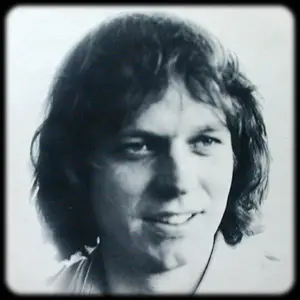DUFFY POWER
 Duffy Power was a man out of time. His short career as a British teen idol eventually led him to be part of the British Blues Boom, but unlike Rod Stewart, Chris Farlowe, Long John Baldry and bands like The Stones, The Yardbirds and The Animals, he couldn’t find a hit record to propel him into the limelight. In the early 70s, Duffy put out more of his own records, but his brand of thoughtful Blues was swamped by the rise of ‘Stadium Rock’, and although his later career showed his enduring talent, it also showed that you need a big handful of luck to make your mark.
Duffy Power was a man out of time. His short career as a British teen idol eventually led him to be part of the British Blues Boom, but unlike Rod Stewart, Chris Farlowe, Long John Baldry and bands like The Stones, The Yardbirds and The Animals, he couldn’t find a hit record to propel him into the limelight. In the early 70s, Duffy put out more of his own records, but his brand of thoughtful Blues was swamped by the rise of ‘Stadium Rock’, and although his later career showed his enduring talent, it also showed that you need a big handful of luck to make your mark.
Duffy’s ‘Little Boy Blue’ with a stellar backing band;
Larry sang with Graham Bond’s band alongside Jack Bruce, Ginger Baker and John McLaughlin, and they formed his backing band when he released a cover of ‘I Saw Her Standing There’ on the Beatles’ own Paramount label. Writing his own Blues songs, Duffy joined Cyril Davies and Alexis Korner in Blues Incorporated , and they later cut Alexis’s ‘Sky High’ album together. Despite his obvious talents, the quality of musicians who wanted to play with him and a following on the Blues club circuit, Duffy could not break through to wider public notice. By 1968 he had stopped gigging (although he worked with Quincy Jones on the soundtrack for the film ‘The Italian Job’) gradually becoming a recluse, writing songs alone in his apartment. Drugs and depression took their toll, but in 1973, Duffy was able to record an album of 10 self-written Blues tracks which was released on the GSF/RPM label. Rather confusingly, Spark Records issued and album of his 60s work, also under the title ‘Duffy Power’ at the same time.
Duffy Power Discography
This is the remastered version of Duffy’s finest 60s work, with Jack Bruce, Ginger Baker, John McLaughlin, and Pentangle rhythm section Danny Thompson and Terry Cox. Fifteen excellent examples of early British Blues.
